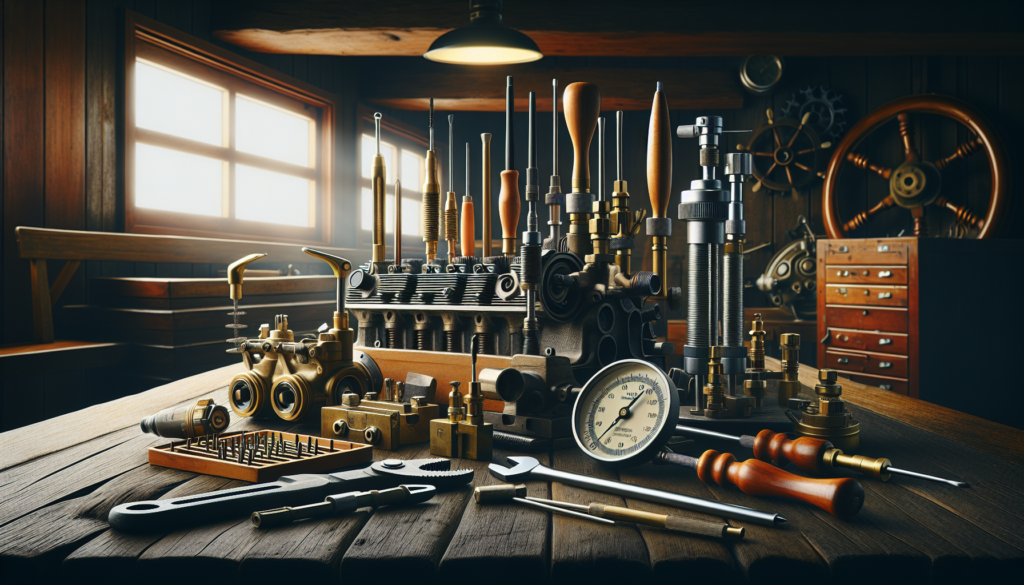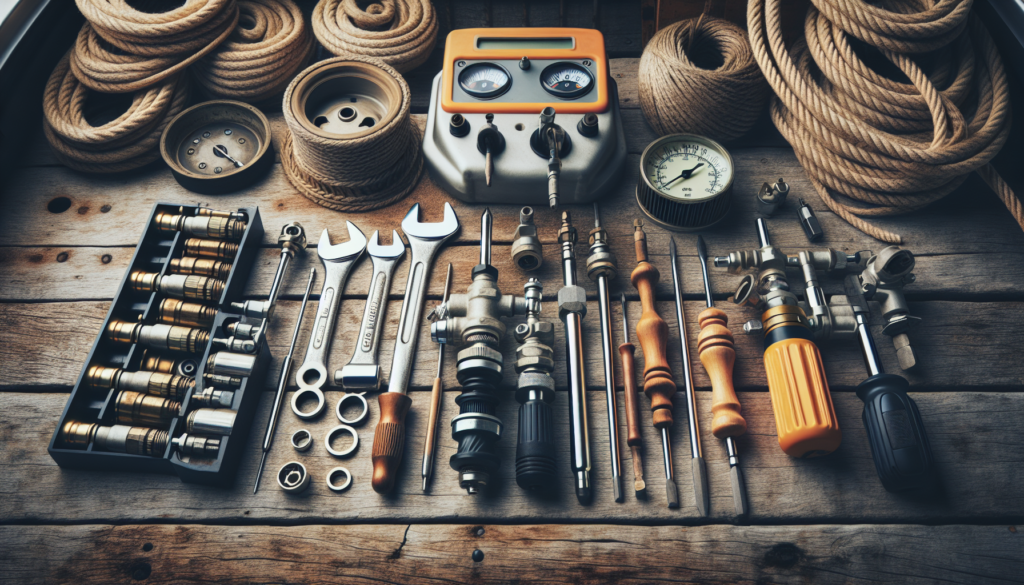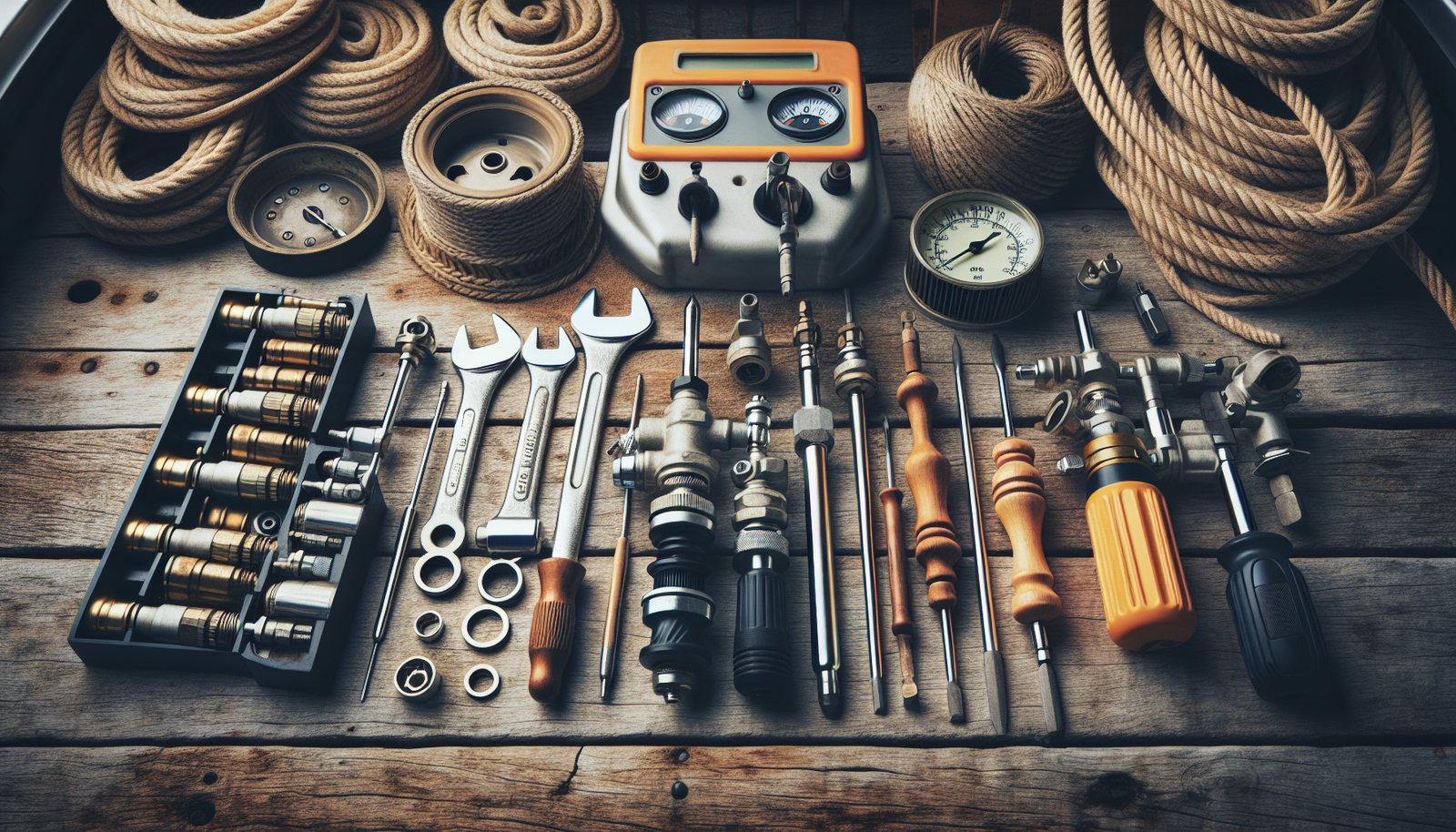Boating is not just a hobby, for many of you it’s a lifestyle. Maintaining the engine of your beloved vessel is essential to enjoy those outings in the ocean or lake, and having the right tools at your disposal can make a big difference. In this article, “What Are The Top boat engine tuning tools Every Owner Should Have?” we’re going to guide you through some must-have tools that every boat owner should keep on deck for exquisite boat engine tuning. It’s time to enrich your boating experience by learning about these indispensable items, their functions and how they could influence the performance of your engine. Buckle up! This is going to be a deep sea exploration into the essentials of engine maintenance.
Importance of Boat Engine Tuning Tools
Let’s dive right in and chat about a topic that doesn’t get nearly enough attention: boat engine tuning tools. Now, I know what you’re thinking, “Alright, that doesn’t sound nearly as exciting as a day spent on the water.” But here’s the thing, the quality of those waterside days heavily depends on how well your boat engine runs.
Understanding the significance of boat maintenance
Imagine setting out on a beautiful, sunny day, the waves lapping against your boat, a cool breeze is brushing your face. Perfect, right? But then, suddenly, your engine sputters and dies. No more lapping waves or cool breezes, just the thud of your heart dropping into the pit of your stomach. The point is, if you can grasp the importance of boat maintenance, you’re less likely to find yourself in such a predicament. It ensures that your boat remains in prime condition, extending its lifespan, preserving its value, and most importantly, guaranteeing your safety when you’re out at sea.
Connection between engine tuning and boat performance
Engine tuning is a significant aspect of boat maintenance. It’s like a regular health check-up for your boat’s engine. Keeping the engine tuned will allow your boat to run smoothly, efficiently, and reliably. You get better fuel economy, greater power and speed, and drastically lower the chances of facing unexpected mechanical failures while using your boat. After all, who doesn’t like to enjoy a worry-free day at sea?
Different Types of Boat Engines
Did you know there’s not just one type of boat engine? Every engine type offers a unique set of characteristics and performance levels and necessitates different kinds of tuning tools.
Single engine boats
Single-engine boats are, as the name suggests, powered by just one engine. They’re usually smaller, less expensive, and require simpler, less time-consuming maintenance. The challenge here lies in recognizing that even though maintenance may be simpler, it is no less critical.
Multi-engine boats
On the flip side, you have multi-engine boats. These boats hold more than one engine and offer better performance, stability, and maneuverability in comparison to their single-engine counterparts. They also allow for more redundancy at sea – if one engine fails, you’ve still got a backup. However, keep in mind that multiple engines mean more maintenance time and costs.
Outboard Motors
Outboard motors are mounted outside the boat on the transom and often serve as rudders when the engine isn’t running. These engines are mobile, more accessible, and easier to work on than their counterparts, making them a favorite amongst a good chunk of the boating community.
Inboard Motors
In sharp contrast, inboard engines are housed right inside the boat’s hull, tucking them out of sight. They offer better balance, increased boat space, and generally have a longer lifespan. On the flip side, inboard engines can be harder to access for maintenance purposes.

Basic Boat Engine Tuning Tools
Whether you’re a boat DIYer or just want to keep some handy tools aboard for emergencies, here are five tools you should absolutely have in your boat toolkit.
Screwdrivers
A good set of screwdrivers, both flat head and Phillips, are a must. They’ll help you open up your engine, adjust parts, and generally handle almost anything that needs twisting or prying.
Wrenches
Wrenches, specifically crescent and box-end wrenches, are essential for handling bolts and nuts within your engine. They’ll come in especially handy for those hard-to-reach places.
Ratchets and sockets
To make your job easier when dealing with bolts and nuts, a high-quality set of ratchets and sockets can come in really handy.
Spark plug gap tool
Spark plugs are crucial for your engine’s performance. A spark plug gap tool, which allows you to adjust the distance between the ground and center electrode, ensuring your spark plugs fire efficiently.
Impellers
Impellers, especially for outboard motors, need regular checking for any signs of wear. They play a critical role in your engine’s cooling system, an essential aspect of engine performance.
Diagnostic Tools for Boat Engine Tuning
Beyond the basic tools, if you’re really keen on keeping your engine in tip-top shape, you’ll want to add some diagnostic tools to your arsenal. These will help you keep a close eye on your engine’s performance.
Engine Analyzer
The engine analyzer is basically your boat engine’s doctor. It will analyze your engine accessories, ignition system, and overall performance to detect any existing or potential issues.
Fuel Pressure Gauges
A fuel pressure gauge is essential for monitoring the pressure in your fuel system. Abnormal pressure could indicate a problem that needs immediate attention.
Compression Testers
A compression tester can help diagnose the condition of your engine’s cylinders. Low compression in even a single cylinder can affect your entire engine’s performance.
Engine Timing Light
An engine timing light is used to tune the ignition timing of your engine. Proper timing ensures that your engine runs efficiently, extending the life of your engine components.
Infrared Thermometer
An infrared thermometer allows you to take temperature readings of various engine parts without touching them. Overheating is a common problem in boat engines and can lead to severe damage if left unchecked.

Electrical Tools for Boat Engine Tuning
Boat engines are as much about electronics as they are about mechanics. Having the right electrical tools can help maintain your boat’s electrical systems in good shape.
Multimeter
A good multimeter will help you troubleshoot a variety of electrical problems. With this, you can measure voltage, current, resistance, and even test your batteries and fuses.
Battery Load Tester
A battery load tester allows you to check the condition of your battery, helping you identify when it’s time to recharge or replace before you’re stranded in the middle of the water.
Wire Strippers and Crimpers
An essential tool for working with electrical wires, a wire stripper is ideal for stripping insulation, while crimpers are used for attaching terminal ends to wires.
Soldering Iron
If you’re serious about DIY boat engine maintenance, a soldering iron can be handy for making permanent connections between wires and electrical components.
Lubrication and Fluid Tools for Boat Engine Tuning
Proper lubrication and fluid levels are vital to your engine’s performance and longevity. The tools below will help ensure that your engine stays well-lubricated and your fluid levels are in check.
Grease Gun
A grease gun is used to apply lubricant to parts of your engine through a nipple or other opening where friction is a significant issue. This can help prevent unnecessary wear and tear on your engine.
Oil and fuel filter wrenches
Your oil and fuel filters require regular replacements to ensure your engine runs pure, unimpeded fuel and oil. Filter wrenches are required for these replacements.
Fluid Extractor
A fluid extractor allows you to draw out oil from your engine with minimal fuss, making oil changes a less messy affair.
Fuel Line Pliers
Perfect for removing and installing clamps on the fuel line, fuel line pliers are designed to reach those tight spots without damaging the line.
Advanced Tuning Tools
If you’re not one to shy away from getting your hands dirty when maintaining your boat engine, investing in some advanced tuning tools will make the job more efficient.
Marine Engine Aligner
A marine engine aligner helps ensure your engine is correctly aligned with the drive system. Misalignment can cause vibrations and lead to damage in your engine and drive systems.
Engine Bore Scope
An engine bore scope allows you to inspect those hard to reach areas inside your engine without having to disassemble it. This simple step can save you hours and lots of greasy work.
Fuel Injection Cleaning Kit
Fuel injection cleaning kits help clean and maintain your fuel injectors, ensuring your engine runs smoothly and efficiently.
Shaft Puller
A shaft puller can make the job of removing a stubborn propeller shaft easier, saving you a lot of time and effort.
Torque Wrench
A torque wrench allows you to tighten bolts to an exact measurement, preventing over-tightening and the potential damage it can cause.
Boat Engine Tuning Kits
Taking a bit of a shortcut, boat engine tuning kits are a one-stop-shop for many of the tools you’ll need to keep your engine running smoothly.
Essential components of a boat engine tuning kit
While every kit varies, most will typically include screwdrivers, wrenches, and spark plug gap tools. Higher-end kits may also include some of the more sophisticated diagnostic or electrical tools, such as an engine analyzer or multimeter.
Factors to consider when purchasing a tuning kit
When purchasing a tuning kit, consider its compatibility with your boat engine, the quality of the tools included, and whether it offers the tools you feel will be most valuable for maintaining your particular engine.
Recommended boat engine tuning kits
Some recommended kits include the comprehensive Apollo Tools 126-Piece Kitchen Drawer Tool Kit, the compact Cartman 148-Piece Tool Set, or the heavy-duty Crescent 170-Piece General Purpose Tool Set.
Common Engine Problems and their Solutions
Just like any other mechanical device, boat engines aren’t immune to problems. Knowing the common issues and how to fix them can save you a lot of headaches (and money!) in the long run.
Overheated Engine
An overheated engine is scary, and it’s risky. Regularly check your cooling systems and water pump impeller, and ensure your thermostats are functioning correctly.
Engine won’t start
If your engine won’t start, check your battery connections, starter, and fuel systems. A healthy engine requires a reliable power source, a functional ignition, and proper fueling.
Engine misfires
If your engine is misfiring, it might be due to a problem with your spark plugs. Alternatively, it could result from issues with your fuel delivery or compression.
Loss of engine power
If your boat’s engine power is diminishing, check your propellers for damage. Also, inspect your fuel systems and its filters for any blockage or impurities.
Proper utilization of tuning tools for solving these issues
Most of these engine issues can be successfully managed, if not entirely avoided, by proper engine tuning and upkeep using the aforementioned tools. Invest your time in learning to use these tools effectively; it’ll save you from unexpected breakdowns and costly professional repair bills.
Routine Maintenance and Servicing
Just like a car, a boat requires regular maintenance and servicing to keep it running smoothly. Ignoring routine maintenance isn’t just bad for your boat; it can also be dangerous for you and your passengers.
Importance of regular engine checks
Whether you use your boat every day or once a year, regular engine checks are essential. These checks can help detect problems before they escalate and cause unnecessary damage and expenses.
Creating a boat engine maintenance schedule
Preventive maintenance is a beneficial tool for any boat owner. Draft up a schedule that includes daily, monthly, bi-annual, and annual tasks to safeguard your boat. A well-planned maintenance schedule can also help spread out the workload and costs associated with boat maintenance, making it a more manageable venture.
Implementing preventive measures for prolonged engine longevity
Maintaining fluid levels, checking for leaks, inspecting belts and hoses, examining the propeller, and keeping the engine clean are some preventive practices that, when put in place, can leading to a long-lasting and trouble-free boating experience.
Alright! Now that you’re all clued up on the ins and outs of boat engine tuning and maintenance, you’re all set to enjoy a worry-free boating experience. Remember, regular check-ups are essential; it’s always easier and cheaper to prevent problems than deal with the aftermath. Don’t let engine failures or sudden breakdowns ruin your day at sea. Instead, equip yourself with the right tools, knowledge, and maintenance practices, and turn every boating heartbeat into a memorable adventure. Happy Boating!

